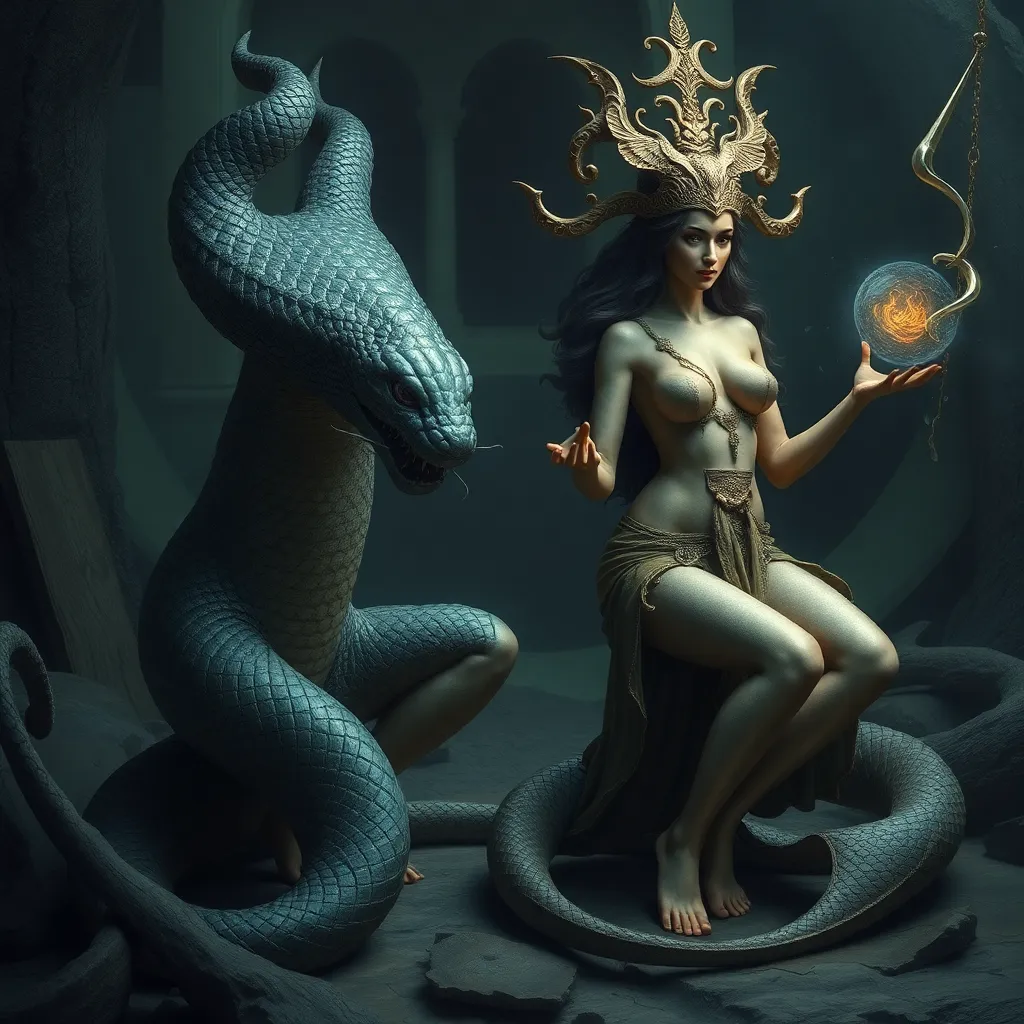The Myth of Pegasus: An Exploration of the Human Need to Believe in the Extraordinary
I. Introduction
The myth of Pegasus, the winged horse born from the blood of Medusa, has captured the imagination of countless generations. This extraordinary creature symbolizes not only beauty and grace but also the heights of human aspiration and creativity. The allure of Pegasus extends beyond mere fantasy; it embodies a deeper human need to believe in the extraordinary.
Mythology serves as a vital component of human culture, providing frameworks through which societies understand their world and express their values. Myths are often seen as the stories that help us navigate the complexities of life, offering explanations for the unexplainable and inspiration for the human spirit. This article aims to delve into the reasons behind the enduring fascination with extraordinary beings and the myths that encapsulate them.
II. Historical Context of the Pegasus Myth
The origins of the Pegasus myth can be traced back to ancient Greek mythology. Pegasus is often depicted as a noble creature, associated with the Muses and the arts. He first appears in texts such as Hesiod’s “Theogony,” where he is born from the severed head of Medusa, a Gorgon slain by the hero Perseus.
Throughout history, Pegasus has been represented in various forms of art and literature, from vase paintings to sculptures, symbolizing inspiration and the quest for knowledge. Notable references include:
- The famous sculpture by the artist Gian Lorenzo Bernini, depicting Pegasus in flight.
- Literary mentions in works by Ovid and later poets who drew inspiration from Greek mythology.
Over time, the myth of Pegasus evolved, adapting to the cultural contexts of different eras. The Renaissance, for instance, saw a revival of interest in classical myths, leading to new interpretations of Pegasus as a symbol of artistic inspiration and human potential.
III. Psychological Perspectives: Why We Believe in the Extraordinary
The human inclination to seek meaning and wonder is a driving force behind our fascination with myths like Pegasus. Our brains are hardwired to find patterns and create narratives, which leads to a natural tendency to gravitate toward extraordinary beliefs.
Several psychological theories help explain this phenomenon:
- Existential Psychology: This perspective suggests that myths provide comfort in the face of life’s uncertainties, offering a sense of order and purpose.
- Cognitive Dissonance: When confronted with conflicting information, individuals may lean towards fantastical beliefs as a way to resolve discomfort.
Moreover, imagination and creativity play crucial roles in human cognition, allowing us to envision possibilities beyond our immediate reality. Myths like that of Pegasus inspire creativity, encouraging individuals to dream and aspire to greatness.
IV. The Symbolism of Pegasus
Pegasus represents more than just a mythical creature; he is a potent symbol of inspiration and transcendence. His ability to soar through the skies embodies the human aspiration to rise above challenges and achieve greatness.
The symbolism of Pegasus can be understood in various ways:
- Inspiration: Artists and thinkers often cite Pegasus as a muse, representing the spark of creativity that drives innovation.
- Transcendence: Pegasus symbolizes the journey beyond earthly limitations, encouraging individuals to strive for higher ideals.
Mythological symbolism can also serve as a coping mechanism, helping individuals to reconcile their struggles with the extraordinary possibilities of life. Through the story of Pegasus, people find the courage to pursue their dreams, even in the face of adversity.
V. The Role of Mythology in Cultural Identity
Mythology plays a crucial role in shaping cultural identity, serving as a tool for social cohesion and the transmission of shared values. The myth of Pegasus has transcended its Greek origins, finding resonance in various cultures around the world.
For instance:
- In Renaissance art, Pegasus became a symbol of humanism and the rebirth of classical ideals.
- In modern literature and film, Pegasus often appears as a representation of hope and the power of dreams.
Myths contribute to national and cultural identities by providing narratives that unify people around common beliefs and values, reinforcing a sense of belonging and community.
VI. The Modern Relevance of the Pegasus Myth
In contemporary society, the myth of Pegasus continues to thrive, appearing in various forms of media and literature. From movies to video games, Pegasus has adapted to modern storytelling, reflecting current themes of aspiration, creativity, and the pursuit of knowledge.
Examples of modern adaptations include:
- Films like “Clash of the Titans,” which reimagine the myth for new audiences.
- Books and graphic novels that explore the adventures of Pegasus in fantastical settings.
The enduring presence of Pegasus in popular culture illustrates how myths can evolve while still resonating with the human experience, inspiring new generations to dream and believe in the extraordinary.
VII. The Dangers of Blind Belief in the Extraordinary
While the inspiration derived from myths like Pegasus is invaluable, there exists a fine line between inspiration and delusion. Blind belief in the extraordinary can lead to harmful consequences, as seen in various case studies throughout history.
Examples of such consequences include:
- Individuals or groups who take myths too literally, leading to dangerous practices or ideologies.
- Societal implications where extraordinary claims are accepted without skepticism, resulting in misinformation.
It is crucial to cultivate critical thinking skills to navigate the complexities of extraordinary claims, ensuring that our beliefs inspire rather than mislead.
VIII. Conclusion
In summary, the myth of Pegasus serves as a rich tapestry of human aspiration, creativity, and the need to believe in the extraordinary. From its origins in ancient Greece to its modern adaptations, Pegasus embodies the qualities that inspire us to reach for the skies.
The enduring human need for myths and extraordinary beliefs reflects our desire for meaning and connection in a complex world. As we continue to explore these ancient stories, it is essential to find a balance between wonder and reality, allowing ourselves to dream while remaining grounded in critical thought.




